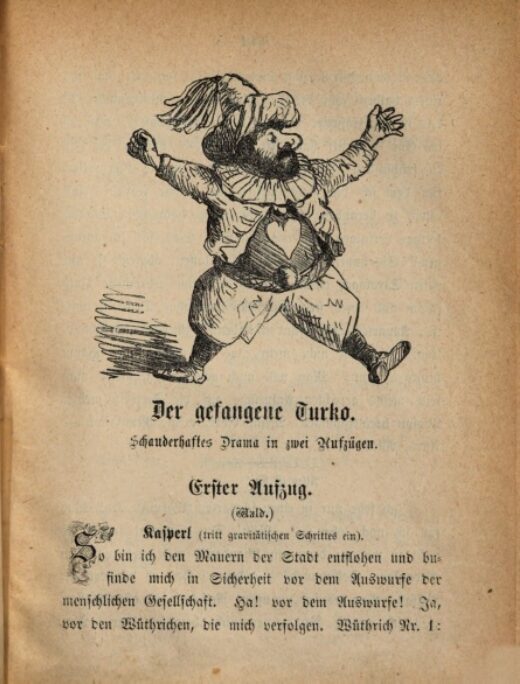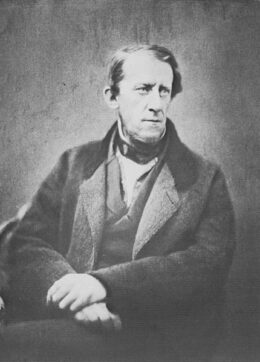
Printed
25 pages
Author(s)
Der gefangene Turko
oder Ein Kasperlstreich aus dem Jahre 1870
Der gefangene Turko (The Turko prisoner) is the only play by Franz von Pocci which deals with the 1870-1871 war. The author has chosen to deal with the subject through the practice consisting (for the winner of a war) in transporting the war prisoners in order to display and flaunt them to the population.
For German people, the “Zouaves” and the “Turkos” (two infantry corps of the French army, formed in Algeria in the colonial era) were new characters, known only through propaganda. People were scared of them, but wanted to see them. In Pocci’s work, this curiosity is pushed to the point where it becomes a farce: the Turko is described as a wild animal that terrifies everyone without even stepping foot on stage.
A debtor pays off all his debts
Kasperl is buried in debt and runs away from the city. He believes that there is no other solution but to kill himself. But when the Devil arrives and drives him to hang himself, Kasperl realises that his time has not come yet. At this exact moment, gunshots are heard. The hunter, Hasenmajer, thinking that he was shooting a billy goat, almost killed Kasperl. In order to be forgiven, he invites his “victim” to the inn to get a drink.
Spitzer, the school teacher, arrives at the inn with terrible news: a Turko has escaped from the convoy of prisoners. The innkeeper Krüglhuber refuses to believe it, but the waitress, Kathi, confirms that the Turko has been seen devouring a little child. Krüglhuber is terrified and demands that all doors be closed. The huntsman comes in and announces that he has captured the Turko and wants his reward, 400 gulden. The innkeeper accepts, but wants to see the prisoner first. Hasenmajer shows him Kasperl disguised as a Turko, locked in a cage. Krüglhuber is happy: he can announce that there is a new attraction in his inn. But Kasperl gets out of the cage and locks the innkeeper inside. The latter realises that the “Turko” is none other than his debtor. Kasperl offers him a deal: either the innkeeper agrees to forget about his debts in exchange for his freedom, or he will have to replace the “Turko”. Krüglhuber has no other choice but to accept Kasperl’s offer.
Publications and translations
Franz von Pocci, Neues Kasperl-Theater. Stuttgart: Otto Risch, 1873
